Innovating the future of finance.
We transform stable, recurring revenue streams into high-quality financial instruments. Leveraging advanced modeling and data analytics to create innovative investments backed by real, predictable income.
RentStream Tokenization
We purchase the rights to collect the properties rental income and tokenize it for everyone to own and benefit from
Taking the place of banks
Banks make money by using the depositors funds to make loans, but don’t reward you for using your funds. RealNOI changes that!
Taking the place of banks
Banks make money by using the depositors funds to make loans, but don’t reward you for using your funds. RealNOI changes that!
Equity versus right to collect rent
Equity in real estate is, at its basic level, the right to collect the cash flow generated by the underlying property
Finance has almost always been about Cash Flow. Loans are made based on borrowers ability to pay back principal and interest. It’s basically renting money. Cash Flow only exists when you have a good or service that someone else is willing to pay you for. RealNOI uses that knowledge and realization as the core of what we do.
We focus on analyzing, predicting and securing Cash Flows from reliable, dependable, predictable and stable sources. Those Cash Flows are what we use to make sure our loans get paid. We would like to say we created the idea, but its been going on for thousands of years. We just do it better. We have analytics and historical data to make better predictive models. We are so confident in our analysis we lend 100% of a building value. Plus we remove interim technical defaults so there is no risk to owners during the period of our loan.
We started by building a product called RentStreams to revolutionize a $4 Trillion, 23 million unit Multifamily Market. Our techniques can be used in other industries, making finance more modern, more democratic. Real Value. Real Analysis. RealNOI.
Our view of the World
What RealNOI is all about and believes in.
We believe in the power of community and helping everyone gain access to income that has traditionally be restricted to benefit only a few select insighters.
We have assembled a team of veteran real estate and financial sector professionals, with volumes of industry experience and dealing with billions of dollars worth of properties and lenders internationally with the focus and sole objective of modernizing, if not revolutionizing, the multi-family commerical financing banking segment.
We have collectively managed over $200 Billion in lending on commercial properties, and have combined experiences of over the last 40 years in lending.
The Process
By tokenizing "RentStreams", investors can secure reliable cashflow
Select Token
Browse our marketplace to identify a property that meets your criterial. All properties listed on RealNOI have been creafully vetted to ensure stable cashflow and long term profit of RentStream owners.
Purchase Tokens
Select the property or properties that meet your return requirements, elect how much of the property RentalStream you would like to purchase, and simply complete the purchase in our transaction portal
Close Transaction
Once the property has been fully funded by one or many RentSteam purchasers, RealNOI closes the loan with the property owner and takes full control over the future income generated by the property.
Get Cashflow
Upon closing, the NOI payments to the RentStream owner start immediately and contiues automatically via smart contracts, until such a time that the RentSream is sold or the term of 20 years expires.
Our First Innovative Product
RentStream based multi-family commerical property financing
We transform stable, recurring revenue streams into high-quality financial instruments. Leveraging advanced modeling and data analytics to create innovative investments backed by real, predictable income.
The Problem:
Outdated Investment Models in a Changing World
The Multifamily Commercial Finance sector manages over 23 MM Apartments and is worth over 5 Trillion USD. Real estate transactions have been built on the fundamental principle that value is created when a willing buyer meets a willing seller. Over time, financial systems have evolved to ensure transparency, protect ownership rights, and reduce fraud—through deeds, titles, notaries, and legal frameworks.
But global investment opportunities haven’t kept up with the modern economy. While businesses and commerce are now borderless, real estate remains locked behind ownership restrictions, favoring domestic investors and limiting global participation.
The Solution:
A New Way to Invest with RealNOI
RealNOI breaks down these barriers by shifting the focus from ownership to cash flow. Instead of tying property valuation to Federal Reserve rate fluctuations, we anchor investments to a stable 5% return, providing a more predictable, risk-adjusted approach to real estate financing.
With RentStreams, investors can own income-producing assets without the burden of traditional property ownership—unlocking new opportunities for both property owners and global investors.
Micro cash flow focused
The Power of Micro Cash Flow Streams
RealNOI takes diversification to the next level by offering micro cash flow streams—small, scalable investment units backed by real rental income. By leveraging micro cash streams, investors can build customized real estate portfolios that align with their financial goals—without the complexity of direct property ownership.
Risk Diversification
Spread investments across multiple properties, reducing exposure to any single asset.
Lower Barrier to Entry
Invest in real estate with smaller capital commitments.
Consistent, Predictable Income
Rental cash flows help stabilize returns.
Flexible Portfolio Management
Adjust investments easily to respond to market conditions.
Future-proof financial instruments
A Future-Proof Approach to Real Estate Investing.
RealNOI isn’t just a financing tool—it’s a paradigm shift. We’re unlocking a new era of real estate investment that prioritizes stability, inclusivity, and global accessibility.
The smart alternative
RealNOI is a smarter alternative to traditional financing instruments.
Instead of relying on property appreciation, RealNOI’s model is built on the true economic value of rental income, giving investors a more stable and predictable financial return. Learn how RealNOI compares to conventional 80% LTV financing.
Traditional 80% LTV Loan
High leverage means higher risk
Tied to market fluctuations
Debt burden & foreclosure risk
Expensive interest & fees
Its a Loan to an arbitrary Value that is only for today
RealNOI’s 5% NPV Approach
Lower risk, cash flow-focused
Anchored to stable 5% returns
No debt, no risk of default
Transparent, cost-effective model
Consistent Value based on Performance
Modernizing Finance
RealNOI modernizes traditional financing
We Develop Advanced Analytics for Bond & ABS Valuation Pioneering fintech solutions that provide deeper insights into structured finance markets through innovative valuation metrics and predictive modeling.
Just because its been “Done this way for years” doesn’t mean it makes sense. Modern finance is more evolved than 20 years ago. We adapt and innovate while holding to standards that are time honored.
We use data analysis and advanced modeling to create accurate predictive forward looking analysis. Machine learning and AI have made predicting the future, based on the past, much more accurate.
We focus on markets that are currently only accessible to the financial elite. Products used by insurance comanies, large banks, hedge and pension finds to preserve and grow long term wealth. We think those should be available to all.
Innovative financial instruments
RealNOI is a smarter alternative to traditional financing instruments.
Instead of relying on property appreciation, RealNOI’s model is built on the true economic value of rental income, giving investors a more stable and predictable financial return. Learn how RealNOI compares to conventional 80% LTV financing.
Multi-Family Commercial NOI RentStreams
Earn Stable Monthly Cash Flow with RentStreams
When you purchase a RentStream from RealNOI, you acquire the right to receive net operating income (profit) from carefully vetted multi-family commercial properties across the United States.
RentStream token holders typically earn a stable return of 5% – 9% on their initial investment. These tokens generate consistent monthly cash flow, making them an ideal choice for investors seeking reliable income, steady growth, or fiat-based payouts.
.
RealNOI Visionary Fund
Join the RealNOI Visionary Fund and Shape the Future of Wealth Distribution
When you participate in the RealNOI Visionary Fund, you become part of an exclusive group committed to redistributing wealth—without putting your capital at risk. Staying true to the core principles of NOI, funds contributed by Visionaries are strategically used to acquire prime multi-family commercial properties in the North American market.
The NOI (net operating income) generated from these properties fuels secondary market liquidity and drives RealNOI’s growth. As a Visionary, you have the flexibility to choose your rewards—whether in equity ownership or interest earnings.
Private Equity and Incubator funding
Invest with Confidence in High-Growth Opportunities
The proceeds from your investment are used to acquire prime, NOI-generating properties, ensuring that your allocated funds are backed by real assets. The net operating income (NOI) from these properties—under the strategic guidance of our executive team—is invested in high-potential early-stage companies with strong prospects for IPO or exit success.
Each participant receives a proportional share of the proceeds, distributed transparently through smart contracts based on their contribution to the pool. Additionally, participants have the flexibility to exit the pool at any time and receive their original funds returned in full.
More innovation announcements soon
True to our mission of innovation, we are always looking for financial services sector, where NOI can innovate.
I need to add new text block.

